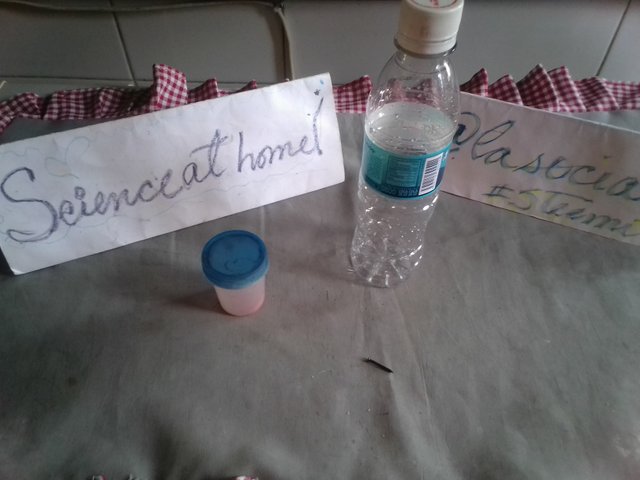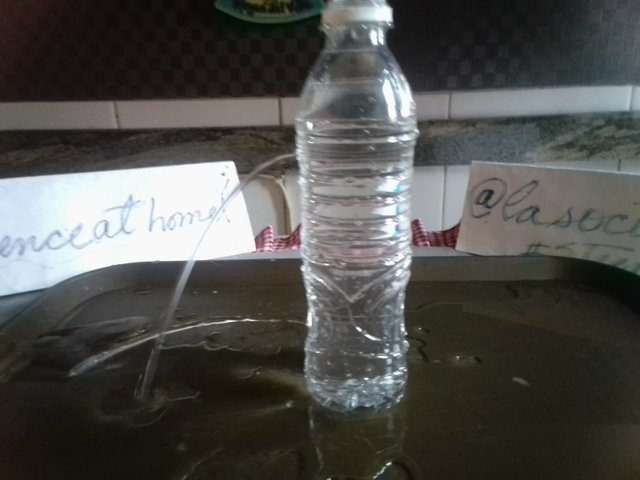Science at home! Fun homemade experiments for the little ones. Today we will learn about the Water Pressure!

So let's go with the experiment let's see what is needed!
But first let's review the theory a little so that our little ones know what we are talking about.
Principle of Hydrostatic:
The fundamental principle of hydrostatics states that the pressure exerted by the water depends on the depth. The deeper, the more pressure.
Materials:
A plastic pot with its lid.
A nail to open the holes.
A container where the water will fall and not wet everything.
Artificial coloring (optional)

Procedures:
1st Part of the experiment:
- To make our experiment we make two small holes at different heights in a plastic bottle. Then we filled the bottle with colored water. It is observed that the water comes out through the two holes, perpendicular to the surface of the bottle and with greater speed through the hole that is closer to the base of the bottle. The water outlet velocity decreases as the water level in the bottle decreases.

Second part of the Experiment:
- Now fill the bottle with water and put the cap. We can see that air enters through the upper hole and water comes out through the lower hole. The water comes out with constant speed while the water level inside the bottle is above the upper hole. Then, when the upper hole exceeds the water level, the speed of the water jet output decreases when the water level in the bottle decreases.
What happened?
The fundamental principle of hydrostatics states that the pressure exerted by the water depends on the depth. The deeper, the more pressure.
In the first part of the experiment the water comes out more quickly through the hole that is closer to the base at greater depth. The pressure on the hole and the speed of the water outlet decreases as the level of water inside the bottle decreases.
In the second part of the experiment, the air that enters the upper hole exerts pressure that compensates for the pressure drop of the water when losing height. The pressure on the lower hole is kept constant and the water comes out with constant velocity. Then, when the level of the water in the bottle is below the upper hole, the air enters freely through the upper hole and the rate of water exit decreases as the water inside the bottle falls.




Hello! I find your post valuable for the wafrica community! Thanks for the great post! We encourage and support quality contents and projects from the West African region.
Do you have a suggestion, concern or want to appear as a guest author on WAfrica, join our discord server and discuss with a member of our curation team.
Don't forget to join us every Sunday by 20:30GMT for our Sunday WAFRO party on our discord channel. Thank you.
It is very import to contribute by educating our kids back at home, they will always learn alot.
Your post has been featured on @wafrica
Courtesy of @nmalove